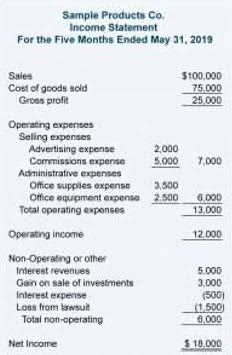
An in-house bookkeeper gives you continuity and knows your business’s finances well. Outsourcing bookkeeping services, on the other hand, offers flexibility and can save you money. Explore the vital role of a full charge bookkeeper, focusing on their key duties and the essential skills needed for effective financial management. This training may include learning how to use accounting software and implementing best https://www.bookstime.com/pricing financial practices.
- Bookkeeping is typically entrusted to a junior and less experienced member of your business.
- They help with making strategic decisions and growing the business by providing detailed financial info.
- In the bustling business world, a full-charge bookkeeper is the navigator and steward of the financial ship, ensuring all accounting duties are performed accurately and efficiently.
- One of the primary obligations of a full-charge bookkeeper is to supply accurate and timely financial statements and reviews.
- This allows Laura to focus on growing the business, knowing that its financial records are in capable and reliable hands.
We help eCommerce businesses master their finances.

A full-charge bookkeeper takes care of all the accounting needs of a company, starting from the preparation of financial statements to the supervision of the general ledger. He or she would work with an outside full charge bookkeeper meaning CPA firm to prepare financial statements and tax returns at the end of the year. A full-charge bookkeeper is also expected to report directly to the owner of an organization or to the highest level of authority.
What to Consider Before Hiring
A full charge bookkeeper is a vital role within an organization, responsible for managing the financial records and transactions of a company. This position requires a high level of expertise in accounting principles and procedures, as well as strong analytical and organizational skills. Full charge bookkeepers are often employed by small to medium-sized businesses or may work as independent contractors.
Accurate Financial Reporting
- The difficulty in hiring a Full Charge Bookkeeper depends on the specific requirements of your business.
- A full charge bookkeeper is solely in charge of all accounting done within a small or medium-sized business.
- Perform any combination of routine calculating, posting, and verifying duties to obtain primary financial data for use in maintaining accounting records.
- A Full Charge Bookkeeper typically works for small to medium-sized companies across various industries.
- To effectively manage accounts receivable, you will need to stay on top of invoicing, payment collection, and follow-up on any outstanding balances.
- As businesses continue to evolve, the role of full charge bookkeepers is likely to grow in importance.
- No matter how much bookkeeping and accounting duties might differ, a full service bookkeeping job combines some features of both.
Bookkeepers must collaborate with various departments to gather relevant data and ensure that the budget aligns with the organization’s objectives. Forecasting, on the other hand, involves projecting future financial performance based on current trends and assumptions. This process requires bookkeepers to be adept at identifying patterns and potential risks, allowing for proactive adjustments to financial strategies. Engaging tools like Microsoft Excel or more sophisticated platforms like Adaptive Insights can facilitate these tasks, providing dynamic models that adjust to real-time data. Payroll software tools such as Gusto, ADP, or Paychex can enhance payroll management efficiency.
A full charge bookkeeper has complete responsibility for the finances of a company, compliance with account standards, and taxation. An accountant is a person solely responsible for the accounting aspect of a company’s finances. They report to senior managers and provide a subjective view of financial data.
However, a good full service bookkeeper will dedicate themselves to continuing their learning. They will attend seminars, review best practices, and similar actions to provide the QuickBooks best service possible. By pursuing these certifications, you can differentiate yourself in the job market and show potential employers your commitment to ongoing professional development.
Full-Charge Bookkeepers vs. Accountants: Navigating Financial Roles
In contrast, a regular bookkeeper typically focuses on specific areas of financial management and may not have the same level of responsibility or authority. As a full charge bookkeeper, you will have a range of responsibilities that are essential to the financial management of a business. These duties include managing accounts receivable, handling accounts payable, reconciling bank statements, and generating financial statements. Let’s take a closer look at each of these tasks and the importance they hold in maintaining accurate and organized financial records.

Managing Financial Software

The actual salary can vary depending on factors such as experience, qualifications, the size and industry of the company, and the geographical location. This experience can often be gained through junior roles such as Accounts Payable Clerk, Accounts Receivable Clerk, or Junior Accountant. In some companies, they may work closely with an accountant or a financial controller. Expand the section below to see unique job postings for all occupations related to full charge bookkeepers. Read on for insight into the industries where the highest concentration of jobs for full charge bookkeepers can be found.
Understanding Projected Benefit Obligation in Accounting
These professionals are the unsung heroes behind the scenes, handling everything from day-to-day transactions to complex financial reporting. With their expertise in budgeting, forecasting, and financial planning, full charge bookkeepers ensure that companies have a clear picture of their financial health at all times. Bookkeeping is essential to any successful business, ensuring accurate financial records and providing vital insights for decision-making. Among various bookkeeping methods, one that has gained significant traction in recent years is full charge bookkeeping. The full-charge bookkeeper’s steady hand ensures the business voyage remains prosperous and true.
